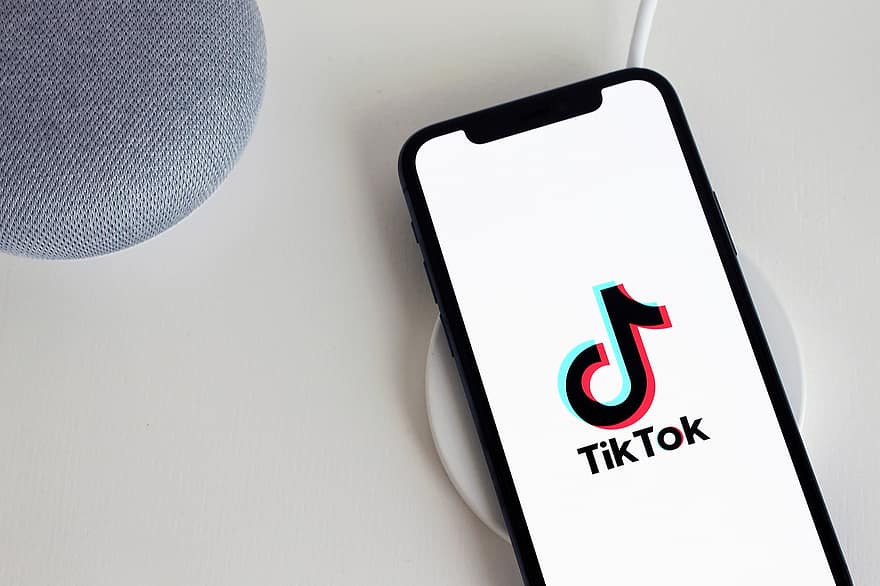
Recent controversy about data collection on the popular app TikTok has sent both its users and government officials into a panic — but for different reasons. While our government worries about the national security issues of the app, TikTok stars are horrified at the potential loss of their newfound social media obsession and method of income.
Instead of banning TikTok, our leaders should harness the momentum of the app’s popularity. The August 14 executive order from President Trump and the Committee on Foreign Investment in the United States, which forces TikTok to sell to an American company at the risk of being otherwise banned, puts good pressure on those involved to find a solution.
Over the past year, TikTok has skyrocketed in popularity. According to CNBC, the app has over 100 million monthly active users in the United States — roughly a third of the population. Globally, TikTok surpassed 2 billion downloads and reported nearly 700 million monthly active users in July.
The Chinese company that owns TikTok, ByteDance, has been heavily criticized for its data collection practices, most recently by President Donald Trump’s administration. According to CNN, “the Trump administration wants to ban the app because it believes its Chinese owners could be required to cooperate with the Chinese government, which in turn, could use the platform for espionage or to spread misinformation, threatening national security.”
Thus, Trump’s executive order called for Beijing-based ByteDance to shed TikTok’s U.S. operations in 90 days.
Trump’s executive order would prevent Google and Apple from hosting TikTok on their app stores, making it virtually inaccessible in the United States.
The president’s concerns are warranted. As the executive order reads, “The spread in the United States of mobile applications developed and owned by companies in the People’s Republic of China continues to threaten the national security, foreign policy, and economy of the United States. At this time, action must be taken to address the threat posed by one mobile application in particular, TikTok.”
To its users, TikTok is nothing more than a popular social media site, but the data collection ramifications are worrying.
As BBC reported, “some of the app’s data collection has raised eyebrows, including the recent revelation that it was regularly reading the copy-and-paste clipboards of users.”
The government is right to have concerns about such a high level of usage on a potentially un-secure app. Federal organizations and large companies need to protect their information from the Chinese government, and they are already enacting measures against TikTok because of this.
According to the Verge, “several U.S. government agencies, including the Transportation Security Administration, the State Department, the Department of Homeland Security, the Navy, and the Army, have banned the use of the app on government-issued devices, citing security concerns over ByteDance’s connections to the Chinese government.”
The public outrage over a potential TikTok ban, however, indicates where many Americans’ priorities lie. Despite the heavy news coverage of TikTok’s privacy issues, the app still has 100 million monthly active users in the United States alone, many who use the app daily. Users are more concerned with access to the app’s content rather than their personal privacy.
Americans should be worried about the silent threat of Chinese data collection. On an individual basis, it is difficult to see the effects of this widespread surveillance, but giving information on a third of the American population to the Chinese government is dangerous.
American companies like Facebook and Instagram collect data too, so why is TikTok different? It’s one issue to have American companies taking Americans’ data. It is much worse to have foreign companies and governments taking that data. Those consequences are much more serious than receiving targeted advertisements on your Facebook page.
According to NBC, “beginning around 2014, a host of American organizations that store personal identifying information have been hacked, with either the government or major private cybersecurity firms identifying China’s Ministry of State Security as the culprit each time. Personal identifying information includes names, addresses, birthdays and Social Security numbers.”
Surveillance technology has only gotten more advanced in the last six years and the collection of data continues.
In a July Congressional hearing with top tech CEOs about data collection, Facebook CEO Mark Zuckerburg was the only participant to explicitly confirm China’s data theft practices.
“I think it’s well documented that the Chinese government steals technology from American companies,” he said.
If China’s Ministry of State Security is already stealing from American tech companies, it must be thrilled with the growing opportunity of TikTok. The millions of American users are simply giving it the data it desires. This is why pressuring China about data collection is important for global security.
So what is TikTok’s future? Walmart and Microsoft are working to buy the app, and with the September 15 TikTok ban deadline fast approaching, they or another company should seize this opportunity. Saving the app for millions of adoring users, while protecting Americans’ information, will be an achievement for national security and national morale.
Lily McHale is a junior studying Political Economy.

